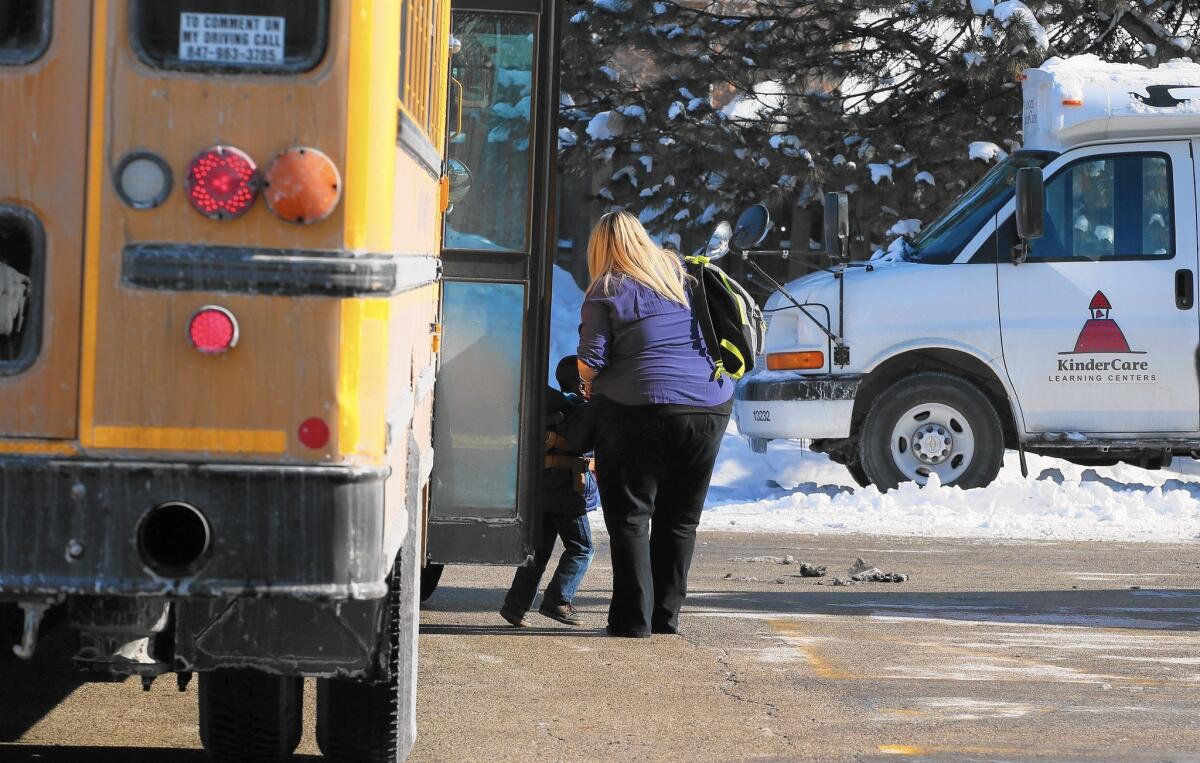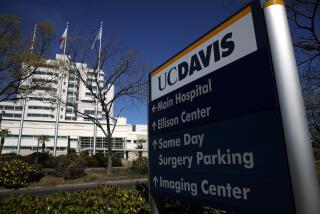Measles outbreak highlights the importance of adult immunization

Measles was once considered a childhood illness, spreading rapidly across schools, playgrounds and parks.
But the national measles outbreak that began two months ago at Disneyland has showed another side of the highly infectious disease â that it is a danger to people of all ages.
Adults 20 years and older make up 59% of confirmed measles illnesses â and most had no record of being immunized as children. Now, health officials are wrestling with how to better monitor the vaccination levels of adults to prevent even broader spread of the disease. Right now, officials focus on tracking immunizations of young children.
The stakes are high, given how quickly and easily the measles can spread. Adults pose a greater risk than children of passing on the disease because they travel and come in contact with more people.
With declining rates of childhood measles vaccinations in California over the last dozen years, experts say more adults will be entering college and the workforce without being fully immunized.
âWeâve had this wake-up call with Disneyland,â said Dr. James Cherry, a UCLA professor and primary editor of the Textbook of Pediatric Infectious Diseases. âAdults have been ignored for years.â
Some institutions already are taking action. The University of California announced last week that it will for the first time require proof of four immunizations, including for measles, in addition to an existing Hepatitis B vaccine requirement.
KinderCare, a nationwide chain of about 1,500 daycare centers, said it will begin requiring measles vaccines for all staff working with babies under 15 months old. The chain also will collect records of measles immunizations for all workers. The move came as eight infants at a KinderCare in a Chicago suburb fell ill with the measles.
Disneyland has offered free measles shots for any of its 27,000 theme park employees in California who want them. The theme park paid for blood tests to check for measles immunity for those who came in contact with six workers sickened in the outbreak. Those without proof of immunity were put on paid leave until it was clear they were not contagious.
Much of the debate in recent weeks has been about getting more children immunized. But now, there is talk about whether adults in schools should be checked as well.
âIn the past, weâve always assumed that everybody was immunized â teachers were immunized,â said Pamela Kahn, health and wellness coordinator for the Orange County Department of Education. âAs of now, I think weâre pretty sure that most teachers do have immunity, but that is going to change in the next few years because of the trend in the last decade or two.â
It makes sense to consider ways to make sure teachers have gotten their vaccines, Kahn said.
âIf youâre going to require it of students in schools, well, it should probably be of the teachers,â she said.
The measles outbreak first spread among Disneyland visitors and workers between Dec. 17 and 20, and quickly spread throughout California, seven other states and Mexico as tourists returned home. Thirty-nine people were infected in the first wave of cases. As of Wednesday, there were at least 136 confirmed cases linked to California, including 10 reported in Canadaâs Quebec province.
Some health officials are surprised that so many of the patients are adults.
âWeâre seeing more adults than we have seen in a typical outbreak,â said Dr. Anne Schuchat, director of the U.S. Centers for Disease Control and Preventionâs National Center for Immunization and Respiratory Diseases. âItâs not just young children that need to be up-to-date on their vaccines, and we are starting to see more adults get measles and spread it.â
Look up vaccination rates at California child-care centers
Cherry, the UCLA measles expert, said adults would not have been hit so hard had vaccine rates in children not declined in recent years amid parent fears about immunization health risks. Another factor: There are many adults who only got one dose of the vaccine before the federal government began recommending two doses in 1989.
âThe most important thing right now is seeing that everybody over 5 gets two doses of vaccine, or have proof of immunity by measuring their antibody in the blood, or by having a history of natural measles,â Cherry said. Health officials have thoroughly discredited claims that vaccines cause autism or brain damage.
Many people arenât aware that they might need a second dose of the measles vaccine. A Michigan woman who grew up in the 1970s said she was vaccinated with one dose of the vaccine as a child â and she was surprised when she fell ill with the disease after traveling to Disneyland in December with her husband and two young children.
Immunization advocates said there should be more checkpoints between kindergarten and adulthood to catch those who donât have a full set of vaccines.
âI think adult vaccinations havenât been a high-profile issue for everybody. ⌠I could ask you right now: Do you know if youâve gotten all your vaccines?â said Litjen Tan, chief strategy officer for the Immunization Action Coalition. âOne of the biggest challenges of adults is helping them keep track of what theyâve had.â
The National Vaccine Advisory Committee recently called on all healthcare providers â including obstetricians, general practice physicians and pharmacists â to ask for immunization records of all adult patients and to follow up to make sure they had their shots.
Reviewing vaccine status on entry into middle school, high school or university offers another avenue. UC officials say the new vaccine requirement will allow unvaccinated freshmen to make their own choice about decisions made for them when they were babies.
âItâs a good opportunity to let them as adults understand how [declining vaccinations] might impact their ability to attend school if they choose not to, and ⌠the bigger picture of what they might face if they are not fully vaccinated,â said Dr. Gina Fleming, medical director of the UC Student Health Insurance Plan.
In the eyes of some experts, the new UC vaccine policy is long overdue. The 10-campus system will bar new students from registering by fall 2017 if they do not submit a verifiable vaccination record for all newly required immunizations, unless exempted for medical or religious reasons.
The California State University system, which has 23 campuses, began requiring measles vaccine documentation in 2002.
âThe issue isnât, âWhy is it important now?â but âWhy couldnât we do it before?ââ Fleming said. Vaccines are now more affordable, and technology has made it easier to track student vaccine records, she said.
The healthcare industry has made a priority of checking worker vaccinations. In 2013, Los Angeles County began requiring hospital healthcare workers to get the flu vaccine or wear a protective mask. At UCLA Health System, workers without immunity to measles, mumps, rubella and chicken pox are not allowed in patient care areas.
There are no state laws requiring vaccines as a condition of employment in California, but some jurisdictions elsewhere have them. In St. Louis County, Mo., all food handlers have been required to get the Hepatitis A vaccine since 2000, after several bad outbreaks sickened hundreds of people.
The county paid for the initial batch of vaccines and hired additional nurses and staff to administer the shots. In recent years, there have been only an average of four Hepatitis A cases a year.
Immunization advocates say simply getting employers to encourage vaccinations can be a powerful tool.
âUltimately, I think it serves every employer an economic benefit to be promoting vaccinations,â Tan said. âThey donât have to mandate it. But I think they have to be educating on it.â
More to Read
Sign up for Essential California
The most important California stories and recommendations in your inbox every morning.
You may occasionally receive promotional content from the Los Angeles Times.











